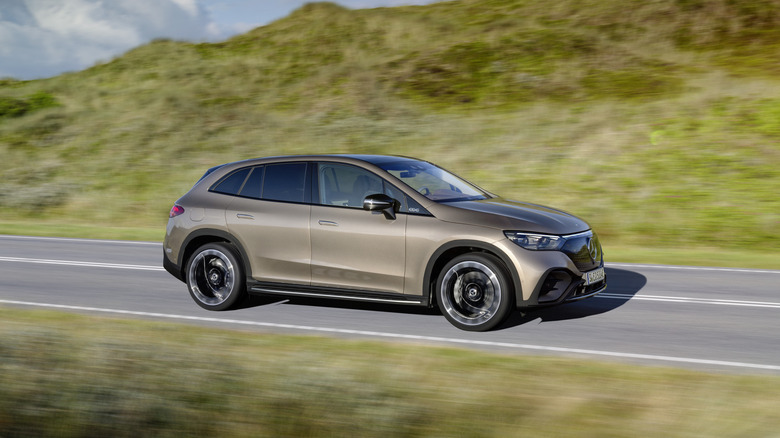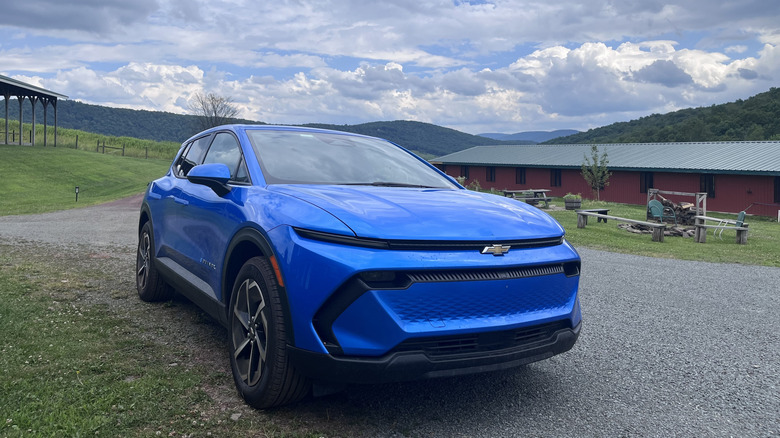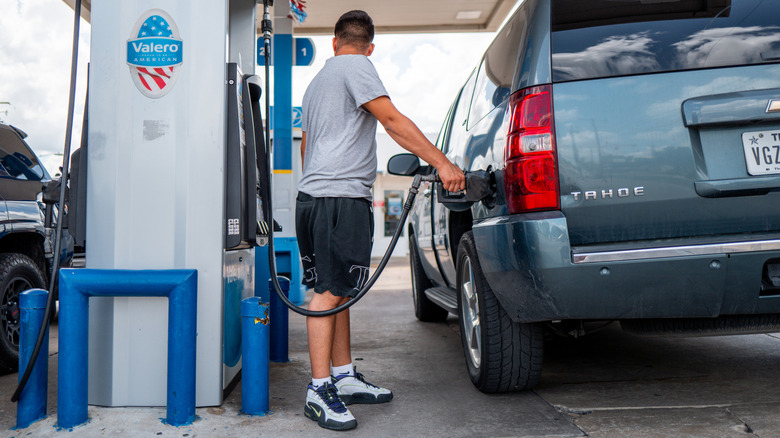Let’s not sugarcoat the scenario: EVs have been presupposed to make up a a lot bigger proportion of annual gross sales than they’re presently. And with Trump’s Massive, Lovely Invoice now a regulation that is killing EV incentives, automakers are having to backtrack. Within the U.S. notably, this has created a bizarre situation through which internal-combustion has gained a brand new lease on life, hybrid powertrains are all of a sudden hip once more, and EVs have slipped right into a form of limbo, priced as luxurious choices for a small group of purchasers however pitched as taking up your complete market sooner or later sooner or later.
The Germans are actually in a pickle. As Automotive Information stories, Mercedes-Benz has checked its ambitions to shed the tailpipe completely, transferring as an alternative to roll out autos that may make the most of all three propulsion choices. Relying on the way you take a look at it, that is both a nightmare or nirvana. On one hand, going electrical meant leveraging model benefits, of which Mercedes has many, to remake {the marketplace} and gobble up share. On the opposite, nonetheless, maintaining combustion within the combine permits for added years of predictable earnings from applied sciences that are not hungry for brand new R&D funding.
Driving auto executives loopy
I’ve talked to loads of folks within the trade about this challenge, and the consensus is that you simply need to fulfill the client above all else. If the client is meh on EVs, then you may’t attempt to drive them into acceptance, missing critical authorities help. In the meantime, if the client needs to economize, maintaining hybrids within the image allows the carmaker to take care of an in-between place. The additional benefit is that you simply aren’t giving up on batteries, which will probably be crucial ought to the temper swing again in favor of extra fast EV adoption.
The larger downside is that Mercedes is not alone: BMW and the Volkswagen Group are additionally grappling with the problem, and their U.S. enterprise is so necessary that they need to give you a viable answer on powertrains. Logically, they’d search to collaborate, spreading the danger round. We’re already seeing an honest quantity of this on EVs. I simply examined a Chevy Equinox EV that shares a platform with the Honda Prologue.
Weak spot within the startup EV area additionally is not serving to. Tesla is struggling, as are Lucid and Rivian. The foremost automakers cannot depend on them to soak up all the danger of making new EV prospects in order that Massive Auto can then, within the parlance of the trade, sweep in and “conquest” them later. Mercedes and everyone else that is effectively established are on their very own.
Why is that this course of taking so lengthy?
5 years in the past, most analysts assumed that EVs have been heading towards crucial mass and that when they consumed round 20-25 p.c of the market, they’d swiftly take over. That hasn’t occurred outdoors of smaller nations and China, and positively not within the U.S., as a result of going from a gas-powered automotive to an EV is not a straightforward leap – it is extra like a sequence of steps. You must take care of charging, software program points, and variable battery efficiency in extremes of climate. You additionally need to spend 1000’s if not tens of 1000’s extra {dollars} to purchase an EV than you’d on a standard fuel automotive.
It is not like electrical energy is a brand new factor. However for many years, the electrified side of our lives has concerned plugging stuff into a gentle movement of energy. With EVs, that does not exist: it’s essential drag the ability round with you. Not a giant take care of your iPhone. One other matter altogether if you happen to’re coping with a 5,000-lb. machine that takes an hour to be replenished at even the quickest chargers. You possibly can see why much less passionate automotive homeowners may need to keep on with the tried and true.
Automakers need to earn money on a regular basis, so they are not going to maintain a romantic attachment to EVs if the gross sales and earnings aren’t materializing. They’re nervous about China’s progress on electrification, however dependable margins on combustion powertrains provide some short-term solace. And so they’d be fools in the event that they did not act on it.




